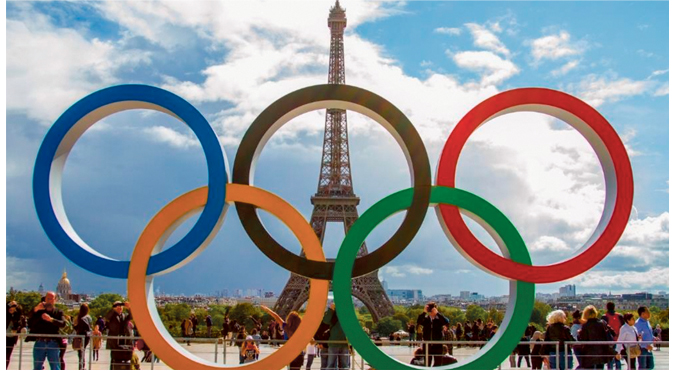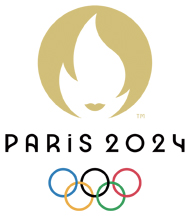
by Evelyn J. Mocbeichel
 This is the year of the 33rd Olympiad and it will take place from July 26 to August 11 in France, spreading out to 16 other cities besides Paris. I’ve often wondered what the process is to be selected for the honor of hosting the Olympics and the cost involved in building new arenas, sporting venues, hotels and housing for the competitors, officials and visitors watching the games. To prepare for this event, the host country easily spends billions of dollars for new construction and upgrades to prepare for this world participating contest. For these summer Olympics four other candidates, Hamburg, Budapest, Rome and Los Angeles applied but Paris won the bidding process. This is the fifth time France has hosted the games that were either summer or winter Olympics. It is expected that over 10,500 athletes will compete in 329 events, offering extended television viewing for those that are excited about watching these champions compete for a medal. There are some new sailing events added this year that include kite surfing and offshore sailing, plus canoeing. Meanwhile some other sports that were in past Olympics such as baseball, softball and karate will not be included in the Paris games. The motto for the Paris 2024 Olympics is Games wide open!
This is the year of the 33rd Olympiad and it will take place from July 26 to August 11 in France, spreading out to 16 other cities besides Paris. I’ve often wondered what the process is to be selected for the honor of hosting the Olympics and the cost involved in building new arenas, sporting venues, hotels and housing for the competitors, officials and visitors watching the games. To prepare for this event, the host country easily spends billions of dollars for new construction and upgrades to prepare for this world participating contest. For these summer Olympics four other candidates, Hamburg, Budapest, Rome and Los Angeles applied but Paris won the bidding process. This is the fifth time France has hosted the games that were either summer or winter Olympics. It is expected that over 10,500 athletes will compete in 329 events, offering extended television viewing for those that are excited about watching these champions compete for a medal. There are some new sailing events added this year that include kite surfing and offshore sailing, plus canoeing. Meanwhile some other sports that were in past Olympics such as baseball, softball and karate will not be included in the Paris games. The motto for the Paris 2024 Olympics is Games wide open!
Speaking French: While some may have studied French in high school or beyond, you’d be surprised how many words are used in everyday English that most of us know their meaning without thinking twice about it. If you say Bon Voyage to friends leaving for vacation, they know you are wishing them a good trip (voyage). Likewise when you travel to someplace exotic you may bring home a souvenir, a reminder of your trip. How about when you send or receive an invitation and see the letters, RSVP with a date next to it. We all know this means the date you are to answer if you will be coming or not. Do you know the words for RSVP are Répondez s’il vous plait, instructing you to please answer? These are words spelled the French way and commonly read in literature and in our writing without hesitation. Curious to find out why our English language, which has a large Germanic base, came to include so much French, the answer is interesting. According to historical background, back in 1066 England was ruled by the Normans after their conquest. The language spoken was Old French, known as Anglo-Norman English and it began to be included in the English language where thousands of words and phrases remain today. Many of these words are in our food selections and names of items. How many do you know?
Questions: 1. A paid driver; 2. A dance on toes; 3. Separate items on a menu; 4. Flakey, half moon pastry; 5. Toast cube of bread in salads; 6. A bunch of flowers; 7. Egg dish with fillings; 8. A small specialty shop; 9. A coffee shop; 10. To fry in a bit of oil; 11. Female underwear; 12. Craft that mixes paper and glue
Answers: 1. Chauffeur; 2. Ballet; 3. A La carte; 4. Croissant; 5. Crouton; 6. Bouquet; 7. Omelette; 8. Boutique; 9. Café; 10. Sauté; 11. Lingerie; 12. Papier mâché

